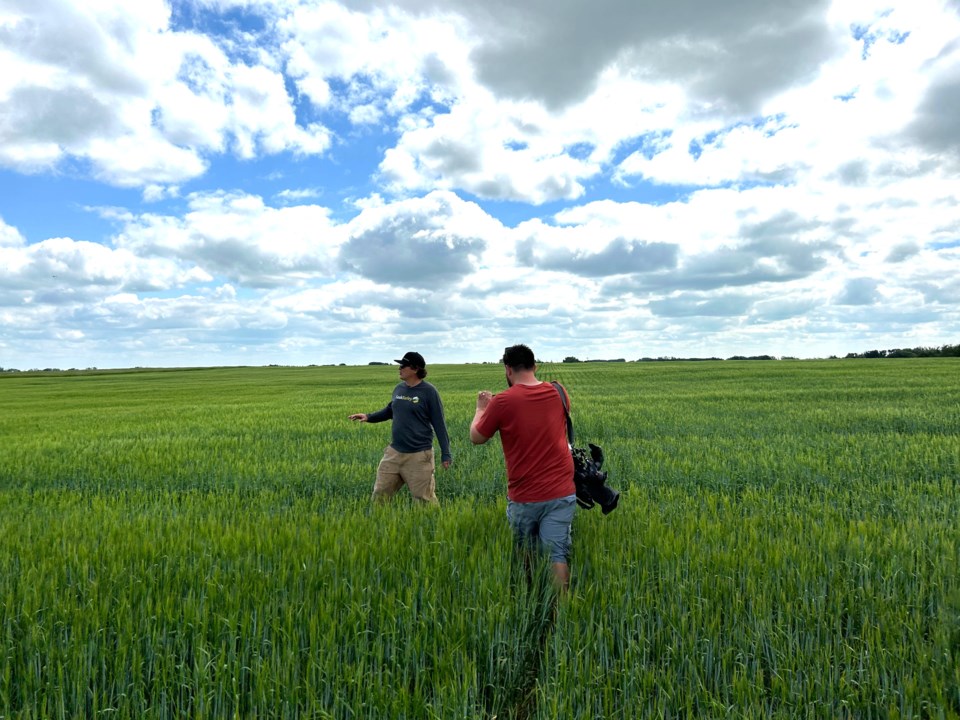YORKTON - Craft beers have become increasingly popular.
And, the Saskatchewan craft beer sector has also become the topic of a three-part film by CBC; Plant to Pint.
One of the episodes is among the five finalists for this year’s ‘Best of Saskatchewan Award’ at the upcoming Yorkton Film Festival.
Peter Mills, an associate producer at CBC Saskatchewan, was naturally pleased with the final-five nod, adding he reacted in a way very much in-tune with the film.
“I felt thirsty for a celebratory local beer,” he quipped.
“Honestly, I'm most excited to just attend the Yorkton Film Festival,” he added turning more serious. “I do interviews about it on CBC Radio every year, but I finally get to go and experience it myself.”
For Mills the nomination is a first.
“This is the first nomination for co-director Kirk Fraser and I, but our producer Natascia Lypny and CBC Saskatchewan have been nominated before,” he said.
The Best of Saskatchewan is an award held in some esteem with the provincial industry too.
“As an outsider, this has always been my favourite award to check out,” said Mills. “For too long, the Saskatchewan film industry has been underappreciated and underfunded.
I'm always amazed at the quality of the filmmakers in this province. The YFF does a great job of recognizing films we might not see.”
Mills, does look at the award from a slightly different perspective.
“Since I'm not really in the film industry, I can only speak as a journalist,” he offered.
“I'm very grateful the YFF also acknowledges the work we do as reporters and documentarians. It helps us reach new audiences and highlights what is still possible in spite of the relentless 24-hour news cycle that is produced for people to consume in nanoseconds.”
So what about the film itself?
“It will make you very thirsty for a cold drink,” said Mills, again turning more serious adding, “it's beautifully shot by Kirk Fraser.
“And it's a story about people.”
Mills said the film happened very much because of Fraser’s vision.
“Kirk wanted to film a visual feast for beer,” he said. “He envisioned the grains dancing in the wind, the cans lining up for duty on the conveyor belt, and that irresistible condensation trickling down the glass. I just had to find the story to go with it.”
Of course as with any film there were challenges, such as “incorporating as many people and elements as possible into a film that is only about 20 minutes,” noted Mills. We had close to 10 hours of just interviews.
“When you start looking more into the beer industry, you realize how many people play a role. We didn't get to half the breweries in operation. We didn't talk to their graphic designers or delivery drivers. We didn't go out to a hop farm or meet a haskap grower. You could tell this story 100 more times.”
But there is still strength in the film, added Mills.
“This is a story about people and building communities,” he said. “We didn't want to make a film about beer, or how to make beer, or an advertisement for businesses. We wanted to get to know the incredibly creative people behind these products and discover what connects them.”
So now with the YFF nomination, has Mills’ own thoughts on the film changed?
“As Adam Smith from Malty National says in our film: ‘I always remember the ones that were a pain in the ass.’ Making a three-part documentary (and three online stories, and three radio stories, and social media videos) is stressful,” said Mills. “The YFF nomination reminds you it was worth it and still a lot of fun.”
You can see Plant to Pint on the CBC Saskatchewan YouTube page.






